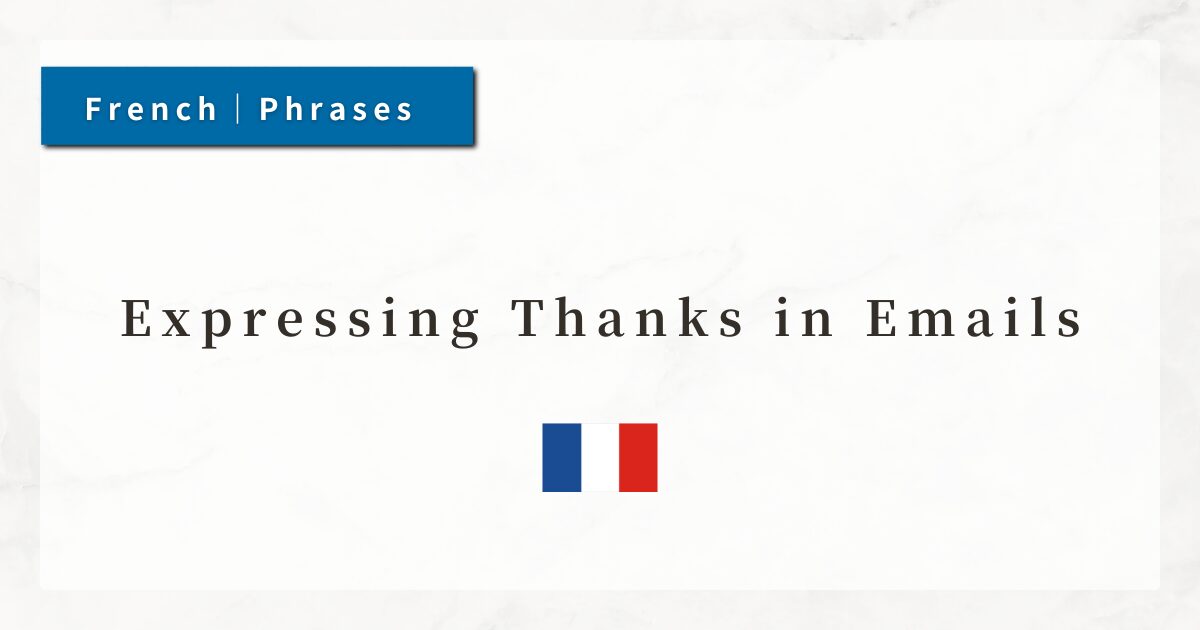#52 Scheduling a Meeting in French|Business Conversation Phrases

In business settings, it is very common to set, reschedule, or propose dates for meetings.
In French, there are specific expressions for saying “to set a date” or “Does this time work for you?” Knowing these will help you handle such conversations smoothly.
In this lesson, I will introduce useful French phrases for scheduling meetings, along with grammatical explanations.
Dialogue

Nous devons fixer une date pour la réunion.
(We need to set a date for the meeting.)

D’accord. Est-ce que mardi après-midi vous convient ?
(All right. Does Tuesday afternoon work for you?)

Mardi je ne suis pas disponible. Est-ce que jeudi serait possible ?
(I’m not available on Tuesday. Would Thursday be possible?)

Oui, jeudi matin c’est parfait.
(Yes, Thursday morning is perfect.)

Très bien, alors on se voit jeudi à 10 heures.
(Very well, then let’s meet on Thursday at 10 o’clock.)
1. Expressions for Setting a Date
The phrase fixer une date means “to set a date.”
- Nous devons fixer une date pour la réunion.
(We need to set a date for the meeting.)
Here, the verb fixer means “to fix” or “to set.”
- Planifier une réunion
(to plan a meeting) - Organiser un rendez-vous
(to organize an appointment)
2. Asking About Someone’s Availability
When coordinating schedules, you can ask:
- Est-ce que mardi après-midi vous convient ?
(Does Tuesday afternoon work for you?)
Here, “convenir à” means “to suit” or “to be convenient for.” The subject is the date/time, and the indirect object is the person.
- Est-ce que lundi matin est possible pour vous ?
(Is Monday morning possible for you?)
Using possible makes the question simpler and more direct.
3. Saying You Are Not Available
To say “I’m not available on that day,” use disponible (available) or pris(e) (busy/occupied).
- Je ne suis pas disponible mardi.
(I’m not available on Tuesday.) - Je suis pris(e) ce jour-là.
(I’m busy that day.)
The word pris literally means “taken,” and in this context, it indicates that your schedule is already filled.
4. Proposing an Alternative Date
When suggesting another date, the conditional tense adds politeness.
- Est-ce que jeudi serait possible ?
(Would Thursday be possible?)
The phrase serait possible softens the request, similar to English “Would it be possible … ?”
5. Confirming the Final Appointment
Once the date is agreed upon, confirm it with a natural closing phrase:
- Très bien, alors on se voit jeudi à 10 heures.
(Very well, then let’s meet on Thursday at 10 o’clock.)
The phrase “on se voit” (we’ll see each other) is a natural way to say “let’s meet,” and it is commonly used in both business and casual contexts.
Summary
- fixer une date
→ standard expression for setting a date - Est-ce que … vous convient ?
→ polite way to ask about availability - Je ne suis pas disponible … / Je suis pris(e) …
→ ways to say you are not available - serait possible ?
→ conditional form for polite suggestions (Would it be possible … ?) - on se voit …
→ natural way to confirm a meeting time




